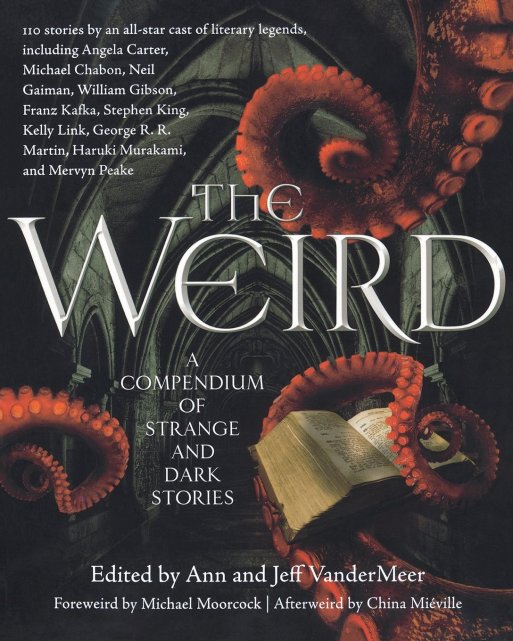It’s not February yet but it will be soon enough, and in these times of uncertainty and stress I figured it wouldn’t be so bad to start listing (and celebrating) some of things I’m excited about for the near future.
First up, though — something from the very recent past.
MIBDUL: latest process video from Inez Kristina
Done for our $10+ Patrons, I’m really loving this fully narrated process video from Inez, detailing how she goes about structuring a page in general, and page 10 of MIBDUL’s first issue in particular.
Of course it would be thrilling for me to see my words come to life as pictures at any stage, but seeing the page at such an early, raw stage has its own particular pleasures. For one thing, it’s good to see that, raw as the sketches are at this stage, Inez has a firm grip of both the geography of the spaces and the overall mood of the characters.

This certainly goes a long way to put me at ease as the writer of MIBDUL — knowing that the script will be rendered in a way that is both faithful and impressive in its own right — but it’s also heartening to discover that Inez understands the vibe of MIBDUL in a very intimate way. Successful communication is the key to all collaboration, and I think we’re riding a good wave here.

It’s also interesting to hear Inez speak about how her approach to the pages has changed of late; namely that instead of painstakingly rendering each page one by one, she’s decided to start sketching out several pages all at once, so as to get a better sense of how the storytelling should flow without getting bogged down by details and drained by the process too early.

Funnily enough, it mirrors my own turn with the writing of late: for similar reasons — to speed up the process in a way that matches the flow of the story — I’ve decided to go ‘Marvel method’ on the latter half of scriptwriting process; partly because dialogue is the most challenging part of it all for me, and partly because I think seeing the page laid out by Inez will inspire me to write dialogue that is both succinct and relevant to the flow of the story.
Please consider following our Patreon journey — it would mean a lot to us. Really.
Awguri, Giovanni Bonello: Gothic pastiche for an illustrious judge

Like MIBDUL, my contribution to the bi-lingual historical fiction volume Awguri, Giovanni Bonello — to be launched at some point in February in honour of the same judge’s 80th birthday — is yet another collaboration with Merlin Publishers, who have been a pleasure to work with ever since they oversaw the publication of my debut novel, TWO.
To say that this was a fun commission would be a massive understatement. Basically, the judge being honoured by this volume — the poshest birthday present imaginable, am I right? — was also something of an historian, and the personages he wrote about were ‘assigned’ to each of us writers to spin a fictional yarn out of. And I will forever be grateful to Merlin’s head honcho Chris Gruppetta for giving me what is possibly the most sensational and salacious character of the lot: Caterina Vitale, a Renaissance-era “industrial prostitute”, torturer of slaves and — paradoxically — beloved patron of the Carmelite Order.
Of course, I went to town with this one. High on the then still-ongoing Penny Dreadful — and hammering out the short story to the haunting and dulcet tones of that show’s soundtrack by the inimitable Abel Korzeniowski — I liberally crafted something that is both a pastiche of Mary Shelley’s Frankenstein and Bram Stoker’s Dracula, all set against the backdrop of a Malta fresh from the Great Siege.
I’m looking forward to getting my mitts on this gorgeous-looking book — designed by Pierre Portelli with illustrations by Marisa Gatt — if only because I look forward to checking out how my fellow TOC-mates tackled the raw material of Bonello’s historical output.
The Bard at the Bar: Debating Shakespeare

On February 8 at 19:00, I will be moderating a panel discussion on whether the works of William Shakespeare are relevant to the Maltese theatre scene — and Malta at large — and if so, how to make them feel more accessible and vital to the widest possible audiences.
The brainchild of actor, director and journalist Philip Leone-Ganado of WhatsTheirNames Theatre, the debate will, significantly, take place at The Pub in Archbishop Street, Valletta, aka the place where Oliver Reed keeled over and died after consuming an obscene amount of alcohol while on a break from filming Gladiator back in 1999.
More recently, the venue has accommodated the very first edition of ‘Shakespeare at the Pub’ — a production of the Two Gentlemen of Verona directed by Ganado himself last year — and another one is in the offing for 2017.

Two Gentlemen of Verona at The Pub, Valletta (WhatsTheirNames Theatre, March 2016). Photo by Jacob Sammut
The lively, unpretentious and game production certainly felt to me like a step in the right direction as far as making Shakespeare more vibrant and relevant was concerned, so I think the Pub is as good a place as any to keep that inspired momentum going with a good discussion.
And it should certainly make for a satisfying debate, given that apart from Ganado himself, the panel will be composed by James Corby (Head of Department of English at the University of Malta and hence offering some academic weight to the proceedings), Polly March (director of the upcoming MADC Shakespeare summer production — the ritualised and established intake of Shakespeare for the island) and Sean Buhagiar, head of the newly-established Teatru Malta and someone deeply concerned with nudging the local theatrical scene out of its usual comfort zones.
So do come along to hear us talk. And feel free to shout your questions and comments over a pint, or ten. Just don’t crank it up to Oliver Reed levels, please.


